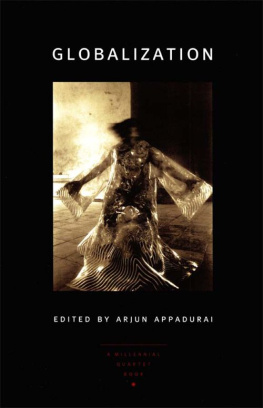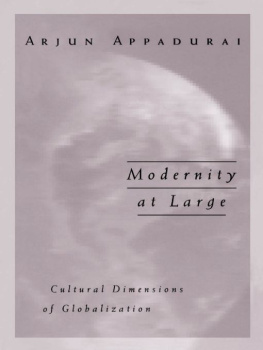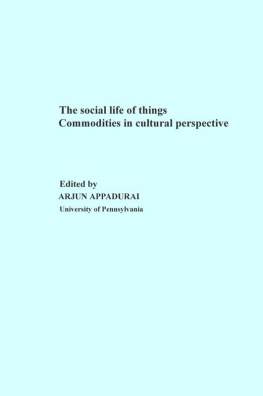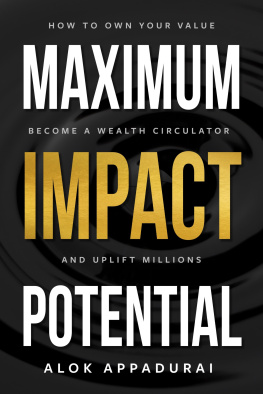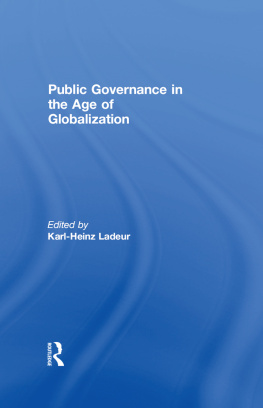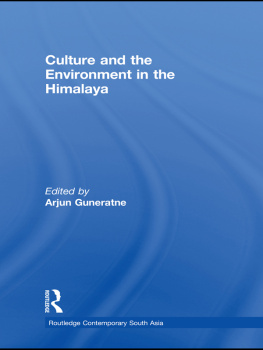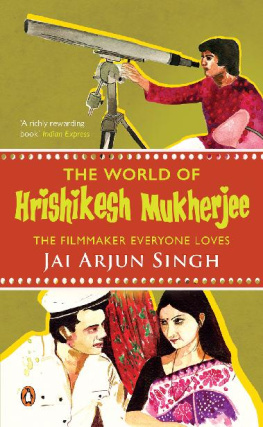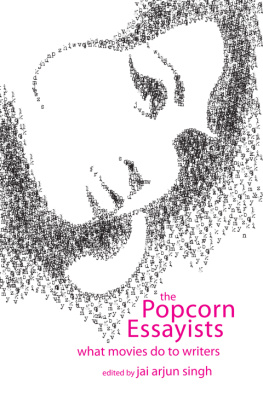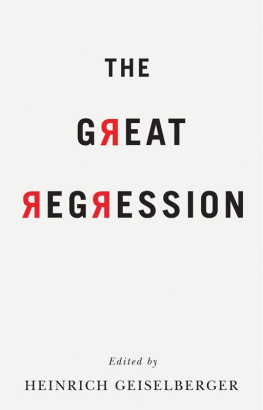Arjun Appadurai - Globalization (a Public Culture book)
Here you can read online Arjun Appadurai - Globalization (a Public Culture book) full text of the book (entire story) in english for free. Download pdf and epub, get meaning, cover and reviews about this ebook. year: 2001, publisher: Duke University Press - A, genre: Politics. Description of the work, (preface) as well as reviews are available. Best literature library LitArk.com created for fans of good reading and offers a wide selection of genres:
Romance novel
Science fiction
Adventure
Detective
Science
History
Home and family
Prose
Art
Politics
Computer
Non-fiction
Religion
Business
Children
Humor
Choose a favorite category and find really read worthwhile books. Enjoy immersion in the world of imagination, feel the emotions of the characters or learn something new for yourself, make an fascinating discovery.
- Book:Globalization (a Public Culture book)
- Author:
- Publisher:Duke University Press - A
- Genre:
- Year:2001
- Rating:3 / 5
- Favourites:Add to favourites
- Your mark:
- 60
- 1
- 2
- 3
- 4
- 5
Globalization (a Public Culture book): summary, description and annotation
We offer to read an annotation, description, summary or preface (depends on what the author of the book "Globalization (a Public Culture book)" wrote himself). If you haven't found the necessary information about the book — write in the comments, we will try to find it.
Globalization (a Public Culture book) — read online for free the complete book (whole text) full work
Below is the text of the book, divided by pages. System saving the place of the last page read, allows you to conveniently read the book "Globalization (a Public Culture book)" online for free, without having to search again every time where you left off. Put a bookmark, and you can go to the page where you finished reading at any time.
Font size:
Interval:
Bookmark:
Globalization
A MILLENNIAL QUARTET BOOK

ALTERNATIVE MODERNITIES,
edited by Dilip Parameshwar Gaonkar
GLOBALIZATION,edited by Arjun Appadurai
MILLENNIAL CAPITALISM AND THE
CULTURE OF NEOLIBERALISM, edited
by Jean Comaroff & John L. Comaroff
COSMOPOLITANISM,edited by
Carol A. Breckenridge, Sheldon Pollock,
Homi K. Bhabha, & Dipesh Chakrabarty
PUBLIC CULTURE BOOKS
Globalization
Edited by Arjun Appadurai
DUKE UNIVERSITY PRESS * DURHAM & LONDON 2001
2001 Duke University Press All rights reserved Printed in the United States of America on acid-free paper  Typeset in Adobe Minion by Tseng Information Systems Library of Congress Cataloging-in-Publication Data appear on the last printed page of this book. The book originally was published as vol. 12, no. 1 of Public Culture with the exception of Rekacewicz ''Mapping Concepts,'' which originally appeared in vol. 12, no. 3 of Public Culture, and Bayart ''The Paradoxical Invention of Economic Modernity,'' originally in La Reinvention du Capitalisme (Karthala, 1994).
Typeset in Adobe Minion by Tseng Information Systems Library of Congress Cataloging-in-Publication Data appear on the last printed page of this book. The book originally was published as vol. 12, no. 1 of Public Culture with the exception of Rekacewicz ''Mapping Concepts,'' which originally appeared in vol. 12, no. 3 of Public Culture, and Bayart ''The Paradoxical Invention of Economic Modernity,'' originally in La Reinvention du Capitalisme (Karthala, 1994).
Support for this book in part came from the Rockefeller Foundation's Division of the Arts and Humanities' support of the special issue of Public Culture by the same name. Support is also acknowledged from the Globalization Project at the University of Chicago.
Dedicated to Neelan Tiruchelvam
31 January 194429 July 1999
Friend, Scholar, Political visionary, International citizen
Neelan Tiruchelvam's violent and untimely death robbed the world of an extraordinary scholar, legislator, and political activist. He brought together scholars and activists on a global scale to discuss problems of civil society, law, and ethics. In so doing, he reminded us of the social life of theory and of the importance of placing local problems in the widest comparative perspective. He also reminded us of the importance of working on solutions to the difficult problems of ethnic terror in our midst. For this he paid with his life.
Those who took Neelan's life acted in the name of one kind of politics. Neelan lived and died in the name of another kind of politics. That was a politics of knowledge, of radical moderation, and of systematic opposition to violence. At the time of his death, he was helping produce constitutional solutions to some of Sri Lanka's worst ethnic deadlocks.
Neelan wrote tirelessly and read widely in the midst of distractions and urgencies of every kind. He wrote in Tamil as well as in English so that the debate about Sri Lanka's future could be democratic. He made many of us welcome in Colombo's International Centre for Ethnic Studies and in his home, with his children and his wife, Sithie, who was his tireless co-worker. His death was senseless. But his life has opened examples of thought and practice that will expand the possibilities of moral intervention for many of us whose ordinary interests he helped throw into sharper ethical light.We mourn his passing and celebrate his example.
I have incurred many debts while editing this collection. The first and foremost is to Carol A. Breckenridge, who encouraged, prodded, and brainstormed throughout the process and who conceived of the Millennial Quartet book series. The contributors to this volume have been models of serious engagement. Kaylin Goldstein, in her role at Public Culture, has been of assistance throughout, as has Robert McCarthy, who contributed in many capacities, including his copyediting of the original manuscript and his preparation of the index. Caitrin Lynch has been, once again, a most valued associate, attentive to a host of organizational and intellectual issues, most recently in the handling of the final proofs. Ken Wissoker and other staff members of Duke University Press have shown themselves to be thoughtful partners in seeing that there are many roads to a fine book. Above all, I owe a debt to another institutionthe journal Public Culture and the project with which it is associatedfor creating the institutional space in which this book was made possible, as part of its push toward new geographies and economies of publication and circulationArjun Appadurai
Grassroots Globalization and the Research Imagination
Arjun Appadurai
ANXIETIES OF THE GLOBAL
Globalization is certainly a source of anxiety in the U.S. academic world. And the sources of this anxiety are many: Social scientists (especially economists) worry about whether markets and deregulation produce greater wealth at the price of increased inequality. Political scientists worry that their field might vanish along with their favorite object, the nation-state, if globalization truly creates a ''world without borders.'' Cultural theorists, especially cultural Marxists, worry that in spite of its conformity with everything they already knew about capital, there may be some embarrassing new possibilities for equity hidden in its workings. Historians, ever worried about the problem of the new, realize that globalization may not be a member of the familiar archive of large-scale historical shifts. And everyone in the academy is anxious to avoid seeming to be a mere publicist of the gigantic corporate machineries that celebrate globalization. Product differentiation is as important for (and within) the academy as it is for the corporations academics love to hate.
This essay draws on two previous publications by the author: ''The Research Ethic and the Spirit of Internationalism,'' Items (Social Science Research Council, New York) (December 1997) 51(4), part I; and ''Globalization and the Research Imagination,'' International Social Science Journal (Blackwell/UNESCO) (June 1999) 160: 22938. The author is grateful to the Open Society Institute (New York) as well as to the Ford Foundation, the Social Science Research Council, and UNESCO for providing occasions for developing the ideas contained in this essay. Srilatha Batliwalla, Ben Lee, Achille Mbembe, Sheela Patel, Kenneth Prewitt, Toby Volkman, and my colleagues in the Regional Worlds Project at the University of Chicago may recognize their provocations. My friends in SPARC (Bombay), especially Sheela Patel, might wish to regard it as a promissory note.
Outside the academy there are quite different worries about globalization that include such questions as: What does globalization mean for labor markets and fair wages? How will it affect chances for real jobs and reliable rewards? What does it mean for the ability of nations to determine the economic futures of their populations? What is the hidden dowry of globalization? Christianity? Cyber-proletarianization? New forms of structural adjustment? Americanization disguised as human rights or as MTV? Such anxieties are to be found in many national public spheres (including that of the United States) and also in the academic debates of scholars in the poorer countries.
Among the poor and their advocates the anxieties are even more specific:What are the great global agencies of aid and development up to? Is theWorld Bank really committed to incorporating social and cultural values into its developmental agenda? Does Northern aid really allow local communities to set their own agendas? Can large banking interests be trusted to support microcredit? Which parts of the national state are protectors of stakeholding communities and which parts are direct affiliates of global capital? Can the media ever be turned to the interests of the poor?
Next pageFont size:
Interval:
Bookmark:
Similar books «Globalization (a Public Culture book)»
Look at similar books to Globalization (a Public Culture book). We have selected literature similar in name and meaning in the hope of providing readers with more options to find new, interesting, not yet read works.
Discussion, reviews of the book Globalization (a Public Culture book) and just readers' own opinions. Leave your comments, write what you think about the work, its meaning or the main characters. Specify what exactly you liked and what you didn't like, and why you think so.

